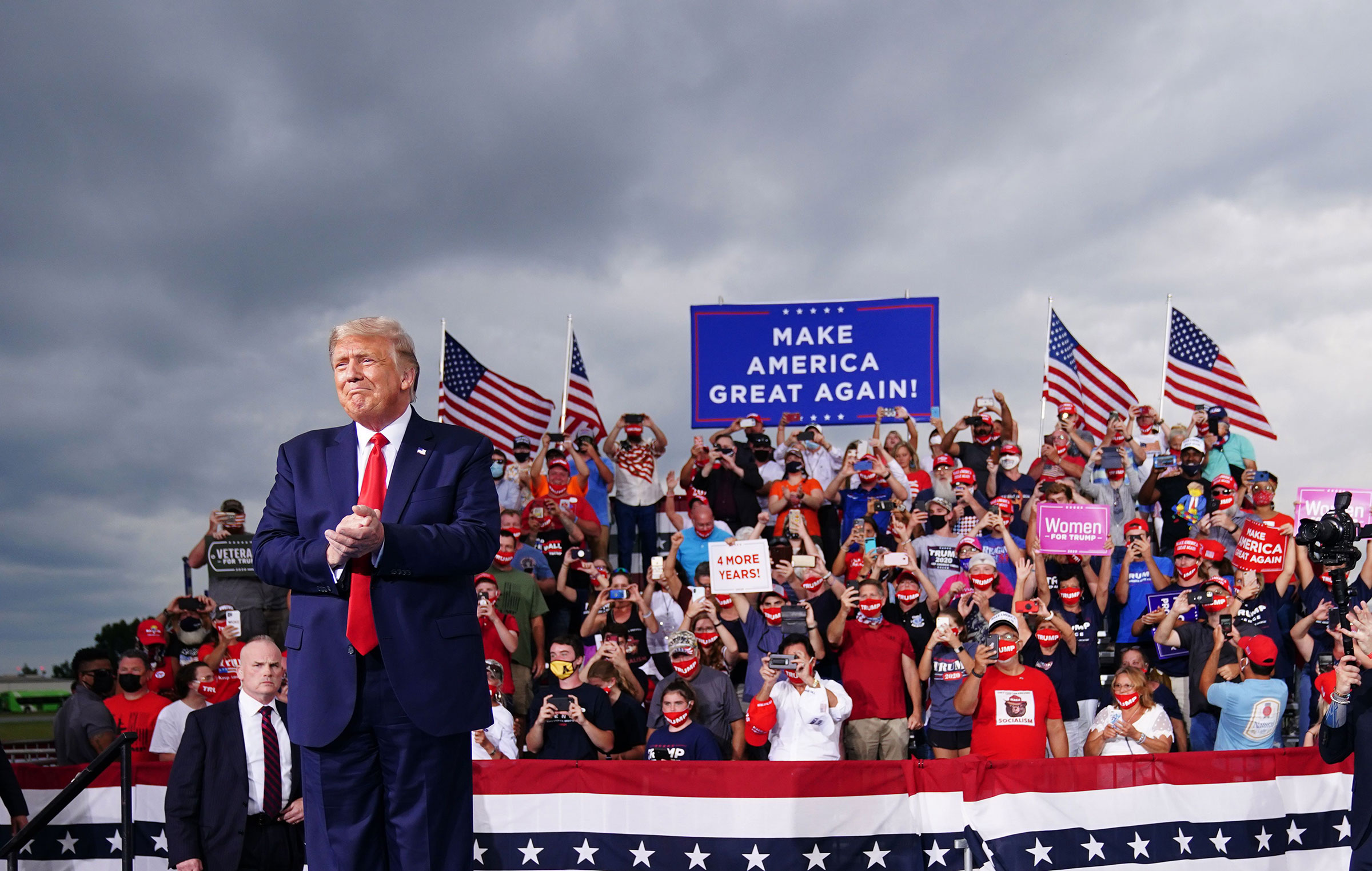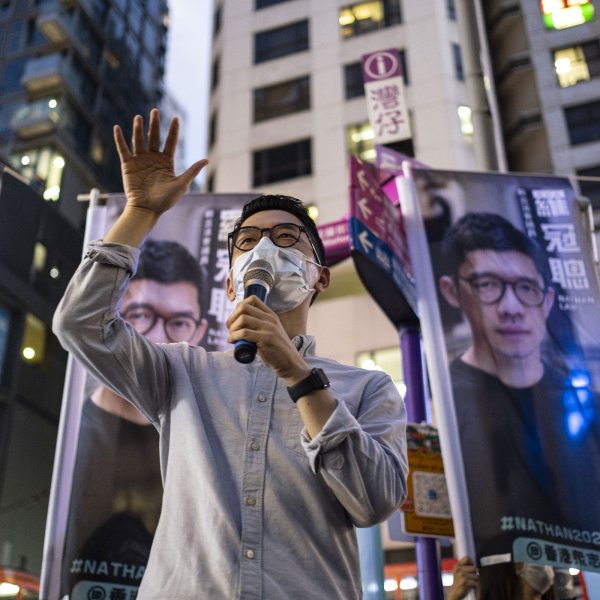With all 230 gleaming feet of Air Force One stretched out behind him on a recent September evening, President Donald Trump told a campaign rally in Freeland, Mich., “We are changing Washington.” Fact-check: true. In nearly four years, his norm-shattering presidency has shown that a President willing to repeatedly slam through the guardrails can bend the government, often to serve his personal political interests. Trump was impeached by the Democratic-led House for doing just this—pressuring Ukraine to publicize an investigation into his political rival Joe Biden—before being acquitted by the GOP-controlled Senate this year. He dangled clemency to keep former aides silent and threatened political enemies with jail.
Trump’s calculations have had real-world consequences. He’s stripped away environmental regulations, even as the changing climate brings widespread fires and more powerful hurricanes. He downplayed the severity of COVID-19 early on, refused for months to wear a mask and pressured government scientists to change their recommendations, as the virus spread to eventually kill more than 200,000 Americans. He’s ignored calls for a national reckoning with structural racism and fanned the flames of racial unrest, sending federal agents to confront protesters and selling himself as the “law and order” candidate. At least one of his power plays seems to have paid off. He followed through on a 2016 campaign promise to appoint conservative judges, and he now faces the potential to have named three Supreme Court Justices in a single term, reshaping the bench for a generation. After insisting the U.S. exit the Iran nuclear deal two years ago—and playing up a common threat from Tehran—Trump helped broker closer ties between Israel and Gulf Arab states, delivering a historic deal. Voters will decide on Election Day whether Trump’s use of power will be a cautionary tale or a preview of more to come.
Bennett is TIME’s senior White House correspondent
- Cybersecurity Experts Are Sounding the Alarm on DOGE
- Meet the 2025 Women of the Year
- The Harsh Truth About Disability Inclusion
- Why Do More Young Adults Have Cancer?
- Colman Domingo Leads With Radical Love
- How to Get Better at Doing Things Alone
- Michelle Zauner Stares Down the Darkness






